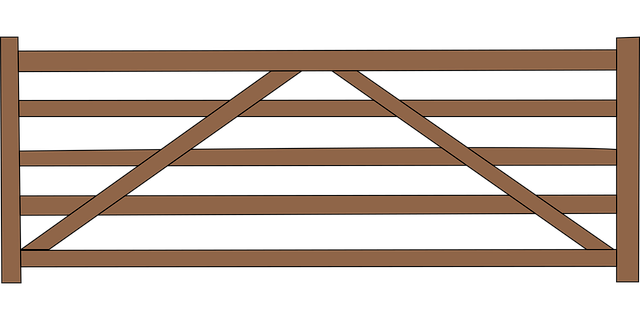New Bedford, Massachusetts residents often look to fence installation as a way to enhance property value and security. Understanding the local fencing market is crucial when obtaining cost estimates, as prices can vary based on material type, design complexity, and contractor experience. This article guides you through the key factors influencing New Bedford fence installation costs, offers tips for securing accurate estimates, and explains local licensing and regulatory considerations to ensure a smooth and cost-effective project.
- Understanding New Bedford's Fencing Market
- Factors Influencing Fence Installation Costs
- Obtaining Accurate Cost Estimates
- Exploring Local Licensing and Regulations
Understanding New Bedford's Fencing Market
New Bedford, Massachusetts, like many cities, has a diverse range of fencing options available to homeowners and businesses. The local fencing market is characterized by a mix of traditional styles such as wood, vinyl, and chain-link fences, as well as more modern alternatives like aluminum and iron gates. The cost of these materials varies widely depending on quality, size, and complexity of design.
Local regulations also play a significant role in shaping the fencing landscape. New Bedford’s building codes dictate permitted fence heights, materials, and installation methods, which can influence project costs. Understanding these guidelines is crucial for homeowners looking to install fences that comply with local laws while staying within their budget.
Factors Influencing Fence Installation Costs
Several factors determine the cost of fence installation in New Bedford, Massachusetts. The primary influences include the type and style of the fence, materials used, size and complexity of the project, labor costs, and any additional features or customization requests. For instance, a standard wooden fence is generally less expensive than a chain-link fence or a privacy fence with intricate designs.
Moreover, the terrain and site accessibility play significant roles in installation expenses. Fences installed on sloped or uneven ground typically require more effort and specialized equipment, driving up labor costs. Similarly, the proximity of utility lines can complicate the process and necessitate additional permits, adding to overall project expense. Homeowners should also expect variations in pricing based on their specific needs, local market rates for materials and labor, and any seasonal fluctuations that may impact availability and pricing.
Obtaining Accurate Cost Estimates
When obtaining accurate cost estimates for New Bedford, Massachusetts fence installation, it’s crucial to gather detailed information about your project. This includes the type of fence material (wood, vinyl, chain-link, etc.), the size and design of the fence, and any additional features like gates or posts. Requesting quotes from multiple contractors is essential; comparing their proposals will give you a clear understanding of average prices in your area.
Be sure to discuss your specific needs and preferences during consultations with potential contractors. This ensures that the estimates align closely with what you’re looking for, avoiding surprises later on. Don’t hesitate to ask about pricing breakdowns, allowing you to identify areas where costs might be optimized or negotiated if necessary.
Exploring Local Licensing and Regulations
Before diving into fence installation, it’s crucial to explore local licensing and regulations. Each municipality has its own set of rules regarding permits, construction materials, and specific requirements for different types of fences. New Bedford, Massachusetts, like many cities, has these guidelines in place to maintain neighborhood aesthetics and ensure safety. Checking with the local building department or zoning board is essential to understand what’s permitted and any potential restrictions on materials, heights, and designs.
This process not only helps avoid fines but also ensures your fence aligns with neighborhood standards and enhances property value. It’s recommended to inquire about specific types of fences allowed, set-back requirements from property lines, and any special considerations for historical or environmentally sensitive areas. Staying informed early in the project will make the installation process smoother and ensure compliance with all necessary regulations.
